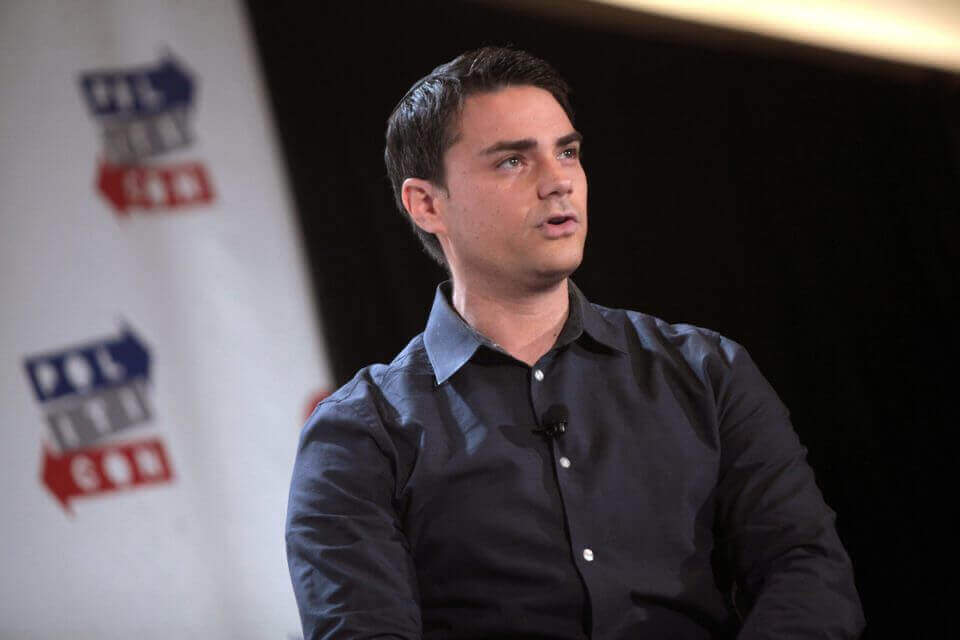
“I think you have to separate conservatism from reactions to the Left. I don’t think they’re quite the same thing. Conservatism is starting to get more popular because of reaction to the Left.”
Conservative columnist and media personality Ben Shapiro joined Merion West‘s Erich Prince on May 30th, 2017 to discuss how he sees the current state of conservatism in America, the unpopularity of the media and Congress, his favorite Founding Father, and the real causes of America’s drug problem.
Mr. Shapiro, thank you for being with us today. To start off, I’d like to ask you about the state of conservatism in the United States. You’re obviously very popular, particularly among young people. Do you think conservatism is on the rise and being rediscovered by young people?
I think you have to separate conservatism from reactions to the Left. I don’t think they’re quite the same thing. Conservatism is starting to get more popular because of reaction to the Left, and I also think that anti-Left movements that aren’t necessarily conservative are on the rise. This is not necessarily something I’m super excited about—not because I don’t despise the Left but because what’s replacing the Left isn’t necessarily a big improvement. The alt-right is something I obviously find repugnant, so watching them rise is a problem.
Do you see your role, in part, then as guiding the opposition to the Left towards a grounding in a set of principles such as constitutionalism rather than encouraging opposition to the Left by hook or by crook?
Yes that’s the idea. The idea is to understand why the Left despises the Right and understand that the replacement for that is not a tribalism of the Right but rather a universalism within the founding principles.
Changing the subject a bit, Congress as a body notoriously suffers from very low approval ratings, probably comparable to that of the media. However, individual members of Congress often maintain relatively high approval ratings from their constituents. Do you have a theory why that break in opinion exists between Congress collectively and individual members?
I think there’s the same break in the media. Everyone says they hate the media, but they subscribe to a publication they like. I think the same is true when it comes to Congress. Now the American people often have two tendencies that are not necessarily in accordance with one another.
Tendency one is: “I want to be lied to. I want to be told that I’m going to be taken care of and told that everything is going to be fine.” Tendency two is: “I don’t like being lied to. So stop it.” Something similar happens with Congress: You elect the person who lies to you. Then you blame everyone else for not being able to make good on the lies and promises.
I like that comparison between the collective and individual members of Congress to the media. So, often political commentators spend most of their time discussing the important debates of the day from rates of taxation to stem cell research. And there might be less discussion of the historical perspective, how it all started. So going back to history, do the ideas of one of the Founding Fathers or early architects of the United States resonate with you in particular?
I think Madison’s writings in the Federalist Papers stand out to me. I think there are aspects of all of them that are interesting. Adams focus on liberty as being at the root of the nation is correct. Jefferson’s fears of an overarching federal government are correct. Washington’s realism about the necessity for curbing our own ambition is true. Many of the Founders were on the same page; the Federalists and the Anti-Federalists all had good points, but they were all working with what they considered a pretty broad frame, which today has narrowed.
They were arguing over whether the federal government has the right to build roads, and we’re arguing over whether the federal government has the right to force you to buy healthcare. So all of the Founders would be unified in their opposition to what’s going on now.
I just started reading a biography on James Madison, so I look forward to learning more about him. I next want to ask you about William Buckley. For another generation, he was perhaps one of the driving forces behind re-popularizing many conservative ideas. Do you see any parallels between his approach and yours?
I think what people miss about Buckley was that he was a pretty pugnacious guy. Everybody likes to pretend that Buckley was this hyper-intellectual fellow, and he was. He obviously had tremendous amounts of knowledge, and he was capable of using words that no one else knew. But when it came time to smack down Gore Vidal, he could do that as well.
It is a testament to his greatness that people are still talking about him. However, they often forget how controversial he was in his day. As we move on in history, it’s easier to back-shelf what makes people interesting in their own time in favor of this gauzy, sepia-toned version of things.
The last question I want to ask is about the “War on Drugs.” As you know, it’s back in the news that Attorney General Sessions wants to crack down on drugs. In your view, how does the “War on Drugs” fit into a conservative philosophy that simultaneously seeks to respect freedom of choice of individuals but also wants to ensure that there is a functioning, coherent society?
First of all, I’m opposed to the War on Drugs not because I like drug use but because I think the government stinks at everything it undertakes. This is proven on a regular basis. It all depends on the goal of the crackdown on drugs. Trump has focused on the opioid epidemic. But to pretend that the opioid epidemic is anything different from what we’ve seen in the past is not quite right.
A lot of the people involved in the opioid epidemic were involved in the past with alcoholism, alcohol running. The idea that Sessions is applying resources to the Drug War as opposed to applying resources to the crime war is a mistake. Again, I think, in large measure, drug use ends up coming down to personal responsibility.
People are going to find a way to get drugs one way or another. That seems always to be the case. Seeing it as a law enforcement problem as opposed to a moral problem—made worse by the collapse of societal dignity and the loss of religion and community—is a mistake.
This has been very interesting. Thank you for your insights and for joining us this afternoon.
Thanks so much.










